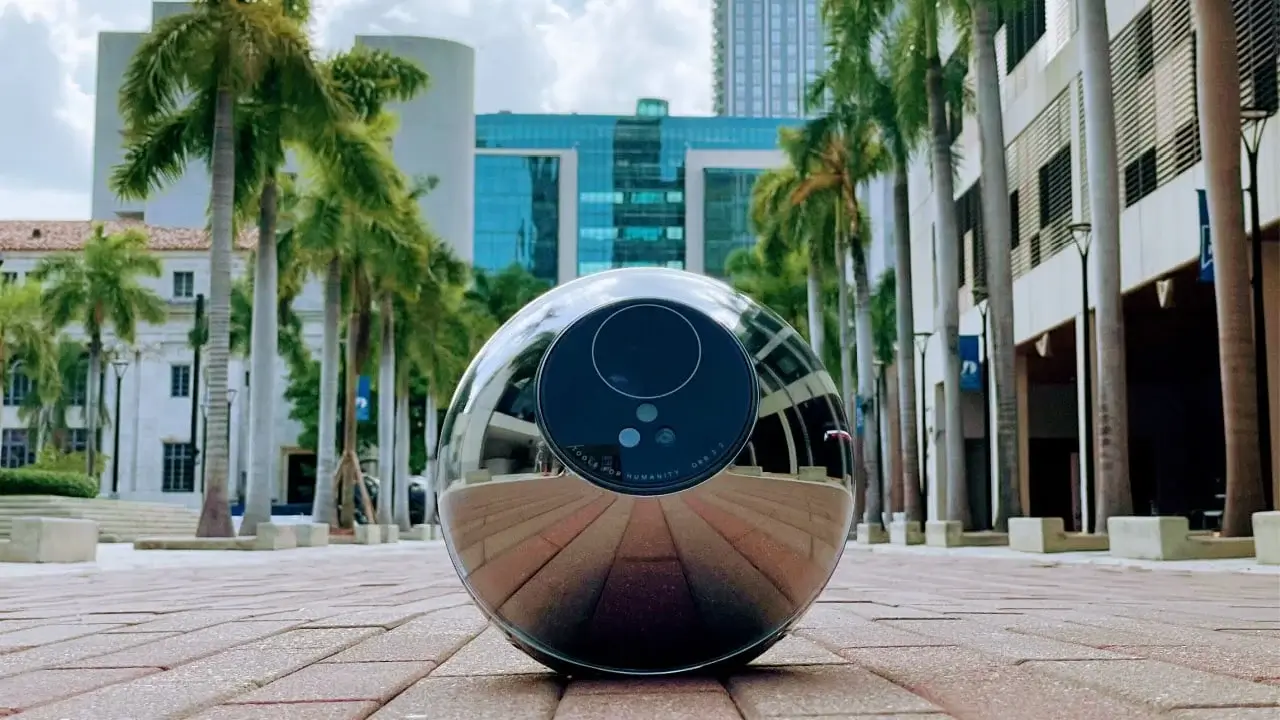Sam Altman’s Worldcoin Rolls Out Eye-Scanning Tech Across the U.S.
02.05.2025 10:00 1 min. read Alexander Stefanov
In a move blending sci-fi and crypto, Sam Altman's Worldcoin project is bringing its iris-scanning tech to the U.S. on a massive scale.
The initiative plans to deploy thousands of its futuristic “orbs” — biometric devices that verify a person’s humanity by scanning their eyes — across cities nationwide, aiming to reach over 180 million Americans by year-end.
The first wave will hit six tech-heavy cities including San Francisco, Miami, and Austin, offering users access to the World app, a WLD token airdrop, and new tools such as crypto loans and a Visa debit card linked to their balances.
There are even plans to integrate the identity system into dating apps, with Tinder testing age verification via World ID in Japan.
Behind the tech is a deeper concern: how to tell humans apart from machines in an AI-dominated internet. Altman says the project began as an attempt to solve that very problem, long before OpenAI.
Now, with regulatory tailwinds and growing adoption, the team is building a Texas-based facility to manufacture orbs and expand into more cities like Las Vegas and Seattle.
World’s co-founder Alex Blania says the goal is ubiquity. “You’ll be able to verify yourself just about anywhere — from gas stations to corner stores — in minutes.”
-
1
Tencent Denies Reports of Nexon Acquisition Talks
15.06.2025 17:00 1 min. read -
2
JPMorgan Warns of Oil Slump to $58 as Global Alliances Unravel
12.06.2025 20:00 2 min. read -
3
Metaplanet Surpasses Coinbase with 10,000 Bitcoin in Treasury
17.06.2025 6:30 1 min. read -
4
Circle and Coinbase Stocks Surge as U.S. Senate Passes Historic Stablecoin Bill
21.06.2025 20:00 2 min. read -
5
Tether Makes a Golden Move: Snaps Up One-Third Stake in Elemental Altus
14.06.2025 9:00 1 min. read
BlackRock’s Bitcoin ETF Now Out-Earning Its $624B S&P 500 Fund
BlackRock’s spot Bitcoin exchange-traded fund (ETF), known by its ticker IBIT, has surpassed the firm’s flagship S&P 500 ETF in annual revenue, according to a new report from Bloomberg.
Ripple Has Applied for a National Banking License
Ripple has officially applied for a national bank charter from the U.S. Office of the Comptroller of the Currency (OCC), aiming to establish a new regulatory benchmark for trust in the stablecoin market.
Key U.S. Events to Watch This Week That Could Impact Crypto
The first week of July brings several important developments in the United States that could influence both traditional markets and the cryptocurrency sector.
Here Is How Your Crypto Portfolio Should Look Like According to Investment Manager
Ric Edelman, one of the most influential voices in personal finance, has radically revised his stance on crypto allocation. After years of cautious optimism, he now believes that digital assets deserve a far larger share in investment portfolios than ever before.
-
1
Tencent Denies Reports of Nexon Acquisition Talks
15.06.2025 17:00 1 min. read -
2
JPMorgan Warns of Oil Slump to $58 as Global Alliances Unravel
12.06.2025 20:00 2 min. read -
3
Metaplanet Surpasses Coinbase with 10,000 Bitcoin in Treasury
17.06.2025 6:30 1 min. read -
4
Circle and Coinbase Stocks Surge as U.S. Senate Passes Historic Stablecoin Bill
21.06.2025 20:00 2 min. read -
5
Tether Makes a Golden Move: Snaps Up One-Third Stake in Elemental Altus
14.06.2025 9:00 1 min. read


